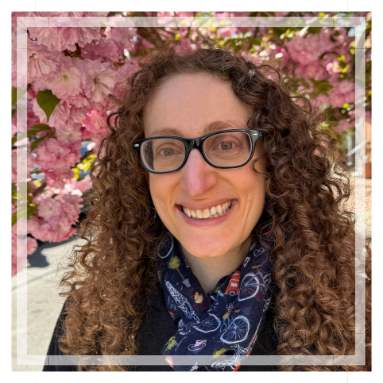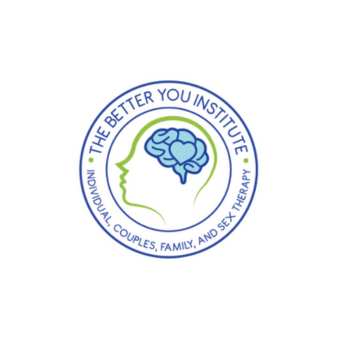
Family Therapist
Walter Matweychuk, Ph.D.
Licensed Psychologist
71 Park Avenue, Suite 1C, New York, New York 10016 | 212-750-2826
Distressed family members too often exclusively focus their efforts on changing their difficult sibling, parent, grandparent or in-law. This is ineffective. Difficult family members often resist such efforts. I teach each family member how to first work on changing their own self-defeating emotional and behavioral reactions in response to their difficult family members. Once someone calms down and not gets so upset about the other people in their family they can influence other people to find better ways to live with or at least gracefully tolerate each other. I show each family member how to work on themselves in order to have a better chance of influencing others. Think about this.

Family Therapist
Jennifer Bullock, M.Ed, M.L.S.P., LPC
Licensed Profesional Counselor
245 South 16th Street, Philadelphia, Pennsylvania 19102 | 215-957-5073
Families are under tremendous pressure to function well together without having the skills to do that. I work with the family to develop skills in listening, appreciation, working more effectively as a team.In our current over-scheduled, over-pressured world, families are confronting problems they have little capacity to do anything about. We can tend to cope by getting stuck in a narrow range of behaviors and responses even if they are not helpful. A child who has learned to have temper tantrums when she is angry, and her parents who have learned to punish or pamper her, are stuck in maladaptive, non-growthful environments—‘a bad play’. It’s like playing the same part in the same play on the....

Family Therapist
Kevin Fleming, Ph.D.
Coach/Change Agent/Consultant
Philadelphia, Pennsylvania 19019 | 1-877-606-6161
Most family therapists inadvertently create more chaos through their well-intentioned efforts to assist a family move through a change process. Why? Brains are inherently deregulated (all of us, may I add) and most talking and dialoguing misses brain-centric problems that need more intensive help. Many times the emotional trauma created by years of solving problems ineffectively can wreak havoc on the brain's parasympathetic nervous system, not ever giving the family a break from flight or fight thinking. Contact us for an innovative neuroscience solution to family dysfunction. Kevin@kevinflemingphd.com or 877-606-6161.

Family Therapist
Mattea LeWitt, MSW, LCSW
Licensed Clinical Social Worker
Philadelphia, Pennsylvania 19146 | 267-571-1284
While it can be difficult to make changes through individual therapy, family therapy is even more complicated since multiple people are involved. I'm committed to helping you and your family members communicate respectfully, support one another, and develop positive and healthy relationships. Together, we'll look at what's working for your family (and what isn't), and consider what new skills and strategies might help you reach your goals. Biological families, chosen families, LGBTQ+ families, multicultural families, and other diverse families are all welcome.

Family Therapist
Nitasha Strait, The Better You Institute
Licensed Professional Counselor, Marriage and Family Therapist, Certified Sex Therapist
123 S Broad Street, Suite 1835, Philadelphia, Pennsylvania 19109 | (267) 495-4951
We believe in fostering stronger family bonds through compassionate and professional care. Our family therapy approach is designed to help families navigate complex emotions, improve communication, and resolve conflicts in a safe, supportive environment. We use evidence-based techniques to address various issues, from major life changes to mental health concerns. By working collaboratively with you, we aim to create positive changes that enhance your family's well-being and happiness. Start your journey towards a healthier family life with us today.
You Have Found the Best Family Therapy in Philadelphia, PA. Let's Get Started.
Thank you for visiting our Pennsylvania search of licensed family therapists in Philadelphia. Discord due from strife, marital problems, sibling rivalry, family of origin issues and blended families (just to name a few) can strain and hurt loving relationships. Counseling with honesty and depth will get to the heart of the issues and work towards healing. Find resolution for your family in Philadelphia right now, please contact a specialist above, you can email 24/7.
Philadelphia is located in Philadelphia County, Pennsylvania. It has a land area of 134.17 square miles and a water area of 8.52 square miles. The population of Philadelphia is 1.57 million people with 581,050 households and a median annual income of $38,253. .
Therapy Affordability Meter for Philadelphia, PA
Check for insurance or sliding scale fees
Counseling in this region can be difficult to afford for many people without insurance. Most people in Philadelphia are not able to commit to a weekly therapy session without proper budgeting. The good news is that counselors in Philadelphia may offer sliding scale fees or low cost options. Insurance may cover your sessions as well. Talk to your therapist to learn more. Low cost counseling and affordable therapy are also sometimes offered by listed city and university level clinics, check with your local Philadelphia public health department.
